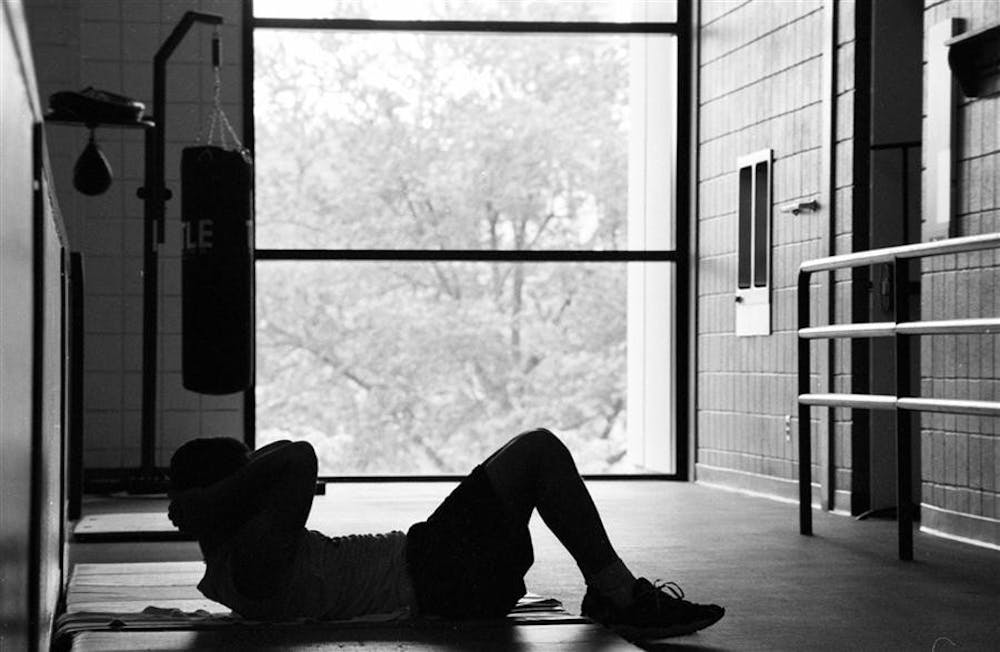IU Student Government ran a survey, which focused on physical health and how often or if people use the IU facilities, from Nov. 4-7.
One question asked why people did not attend the gym, which showed 82% indicated they don’t have time to work out. In addition, on another question, one quarter of participants said they do not go to the gym because there is not a bus route to IU's exercise facilities.
IUSG director of health and wellbeing Jordan Davis, is already in conversation with IU Transportation and plans to meet with them early next semester to address this issue.
“From what I understand the closest you can get is if you go to either Eigenmann or Union Street,” Davis said. “That is totally something we are working on.”
Another question indicated 23.2% of participants workout 30 minutes to one hour each week and 22.4% said 3-4 hours.
The Department of Health and Human Services recommends that people get two and a half hours of exercise each week. Based on this standard, 60.4% of participants are not getting enough exercise.
In contrast, on another question, 99% of those surveyed said physical exercise is somewhat important to mental wellbeing.
Although there is not anything directly that IUSG can do to get people to go to the gym, they can encourage students to go through marketing, IUSG congressional secretary Madeline Garcia said.
Garcia and her freshman intern Elizabeth Algeri analyzed the survey data and created recommendations for the Student Recreational Sports Association in their report based on the results. One of the recommendations was increasing marketing of workout classes and advertising the value of even 30 minute workouts.
“I think it is a combination of marketing and then changing the campus culture about exercise and positive eating habits,” Garcia said.
Another recommendation was to ensure that all gym spaces are open to people of all sizes, backgrounds, abilities and activity levels. This was based on the fact that 23% of those surveyed said their physical insecurities were a barrier to their exercise.
“Some of our policy recommendations there were more inclusive and welcoming spaces and activities,” Algeri said. “Those just have some positive effects that ensure people of all bodies can feel welcomed in the gym spaces.”
Davis said the results more or less matched her perceptions of how students exercise. This is reassuring because it indicates she is headed in the right direction with her current policies, she said.
The one mistake in the survey was not including a question where people could indicate if they were a student or faculty member, Davis said.
“They’re telling me that I am not going in a completely crazy direction,” Davis said. “We have already been trying to be proactive and working on things and this tells us that we don’t have to completely scrap the work we have.”



